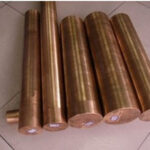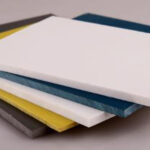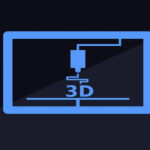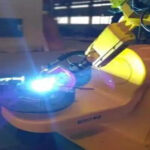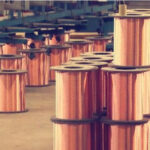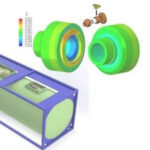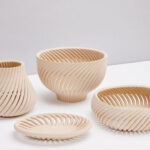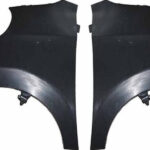Classification
Table of Contents
According to different electrodes, argon arc welding machine can be divided into melting electrode argon arc welding machine and non-melting electrode argon arc welding machine.
Non-melting electrode argon arc welding
Non-melting electrode argon arc welding refers to the arc burning between the non-melting electrode (usually tungsten electrode) and the workpiece, and an inert gas (usually argon gas) flows around the welding arc, which does not chemically react with the metal to form protection The cover prevents tungsten extremes, arcs, molten pools and high-temperature metals from contacting the air, which can prevent harmful gases from oxidizing and absorbing. Thereby forming a dense welded joint with good mechanical properties.
Melting pole argon arc welding
The welding wire is conveyed by the wire wheel, and the contact tip conducts electricity. An arc is generated between the base material and the welding wire, and the welding wire and the base material are melted, and the inert gas argon shielded arc is used for welding with molten metal. Unlike argon tungsten arc welding, argon tungsten arc welding uses welding wire as the electrode, which is then continuously melted and injected into the molten pool to condense into a weld, while argon tungsten arc welding uses shielding gas. With the application of technology, the protective gas has developed from a single argon gas to a large number of mixed gases. In terms of operating methods, semi-automatic melting argon arc welding and argon-rich mixed gas shielded welding are the most widely used, followed by automatic melting argon arc welding.
Operating procedures
Argon arc welding must be operated by a dedicated person. Check the equipment before use and whether the tools are in good condition. Check whether there is a ground wire in the welding power source and control system, and whether there is lubricating oil in the transmission part. To operate normally, the argon gas and water source must be unobstructed. If there is water leakage, immediately notify maintenance. Whether the welding gun is normal and whether the ground wire is reliable.
Check whether the high-frequency arc ignition system and welding system are normal, and whether the cable joints are reliable. For automatic filament argon arc welding, check whether the adjustment mechanism and the wire feeding mechanism are intact. Select the polarity according to the material of the workpiece and connect the welding circuit. The general material is DC positive connection, and aluminum and aluminum alloy are reverse connection or AC power supply.
Inspect whether the weld groove is qualified, and the groove surface must not have oil stains, rust, etc., and both sides of the weld with a thickness of about 200mm should be degreasing and derusting. Check the reliability of the molds used, and check the preheating equipment and temperature measuring devices for the weldments that need to be preheated. The argon arc welding operation button should not be too far away from the arc, and it can be turned off at any time in the event of a failure.
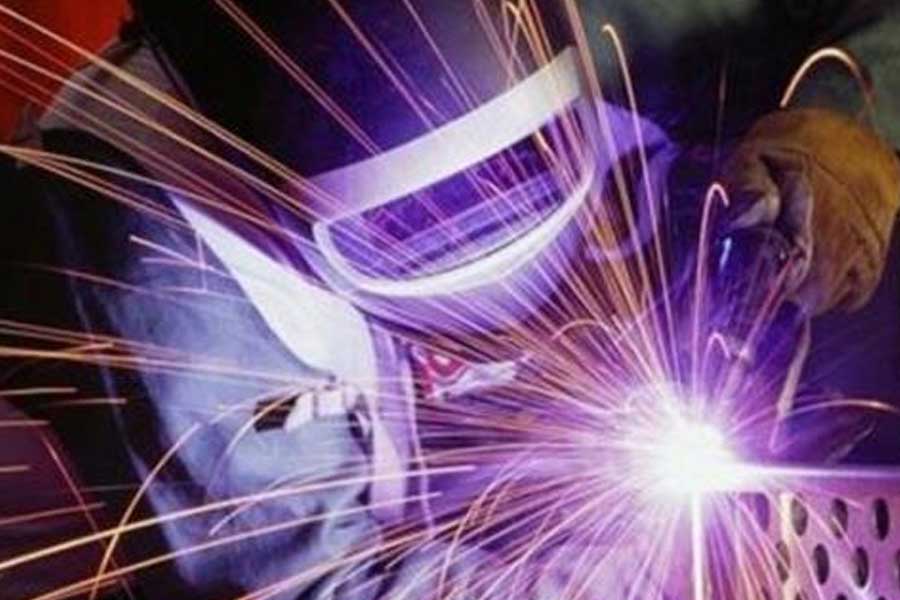
When using high-frequency arc ignition, you must always check for leakage. When the machine breaks down, the power should be cut off for maintenance, and the operator should not be allowed to repair it by himself. It is strictly forbidden to expose your body and other parts when approaching the arc. It is strictly forbidden to smoke or eat near the arc to prevent ozone and smoke from being inhaled into the human body.
When grinding tungsten electrodes, you must wear masks and gloves, and follow the operating procedures of the grinder. It is best to use cerium tungsten electrode (with less radiation). The grinding wheel must be equipped with an air extraction device. Wear an electrostatic dust-proof mask at all times during operation. Minimize the working time of high-frequency electricity when running. Cannot work continuously for more than 6 hours. The welding work place must have air circulation.
During operation, the ventilation and detoxification device should be turned on. When the ventilation equipment fails, it should stop working. Argon cylinders are not allowed to collide, and there must be a bracket, which is more than 3 meters away from the open flame. When performing arc welding inside the container, please wear a special mask to reduce the inhalation of harmful fumes. Personnel supervision and cooperation should be arranged outside the container. Tungsten rods should be kept in a lead box to avoid injury due to radioactive dose exceeding safety regulations when a large number of tungsten rods are concentrated.
When the first beam of arc light penetrates into the pipe, it means that the welder will be responsible for the quality of the weld. For each molten pool during the bottoming, the welding wire should be evenly given to ensure that there is no undercut, and the fusion of each joint should be smooth.
The problem should not lie in the bottoming. Even if you dig the mouth, the root will not be dug, especially for thick-walled pipes. The bottoming should be more careful. If you are not sure, you should use a flashlight to check it out.
For any beautiful weld, the bottoming is very important. A good bottom means that the weld is half the success.
Avoid recession
The repair of the weld has worn away your spirit and your confidence. If you want to ask what skills you have in bottoming, it is to practice more, watch more, think more, the same parameters can be welded well by others, which may not work for you.
In order to prevent the overhead welding part from being recessed, the vertical and flat welding parts are too high, the bottom welding position adopts the inner wire filling method, and the vertical and flat welding parts adopt the outer wire filling method for welding;
The welding gun is inclined to the welded seam, and the inclination angle is generally maintained between 35° and 65°, and the welding wire is inclined between 15° and 20° to the unwelded part.
When welding, the porcelain nozzle of the welding gun is directly pressed into the groove, the tungsten electrode extends 4mm-6mm, and the end is about 1mm away from the root of the groove.
Pipeline argon arc welding bottoming usually adopts external wire feeding operation method, that is, the welding wire is sent to the root of the groove to be melted. Usually, the external wire feeding process can meet the requirements for pipelines with a diameter of less than Φ108mm. For large-diameter pipelines, bottoming With the use of external wire feed, the back surface of the welding seam at 5 to 7 o’clock is easy to form a continuous concave, which is not good for the back forming.
Therefore, the operation method of bottoming the pipeline with internal wire feeding is that the welding wire enters the back of the groove through the groove gap, and the welding arc directly acts on the blunt edge while melting the welding wire. Under the action of the back groove top support, the welding wire melts and drops directly. Fall on the back of the groove to form a bottom layer.
The inner wire feeding will make the bottom half of the pipe to form a slightly convex back surface, which is thicker and strong enough.
The wire feeding method of the internal wire feeding is the left little thumb, ring finger, and thumb finger holding the welding wire, and then sliding down with the thumb to adapt to and overcome the out-of-control phenomenon caused by the wire feeding distance.
The arc starting position of welding is about 10mm in front of the welding direction, and the arc length is controlled to be 2~3mm after the arc is started. After the arc is started, no welding wire is added. After the root blunt edge is melted to form a molten pool, the wire can be filled.
The welding tungsten electrode and the axis of the tube are at 90°, and the welding wire is about 100°~110° to the tungsten electrode along the tangent direction of the tube to ignite the arc, so that the filler metal and the blunt edge are completely melted to form a bright and clear molten pool, and then the welding gun moves upward at a constant speed. With continuous wire feeding, the welding torch simultaneously swings in a small moon bud shape.
When feeding the wire at the overhead welding position, the welding wire should be consciously piled up to the root to shape the molten pool inside the pipe wall to avoid root pits. When welding to the flat welding position, the welding torch is slightly tilted backwards, and the welding speed is increased. In order to avoid the molten pool temperature being too high and falling, if the molten pool is too large, the current attenuation function can be used to appropriately reduce the temperature of the molten pool to avoid pits in the overhead welding position or bumps in other locations.
Link to this article: How to prevent the indentation of the overhead welding part?
Reprint Statement: If there are no special instructions, all articles on this site are original. Please indicate the source for reprinting:https://www.cncmachiningptj.com/,thanks!
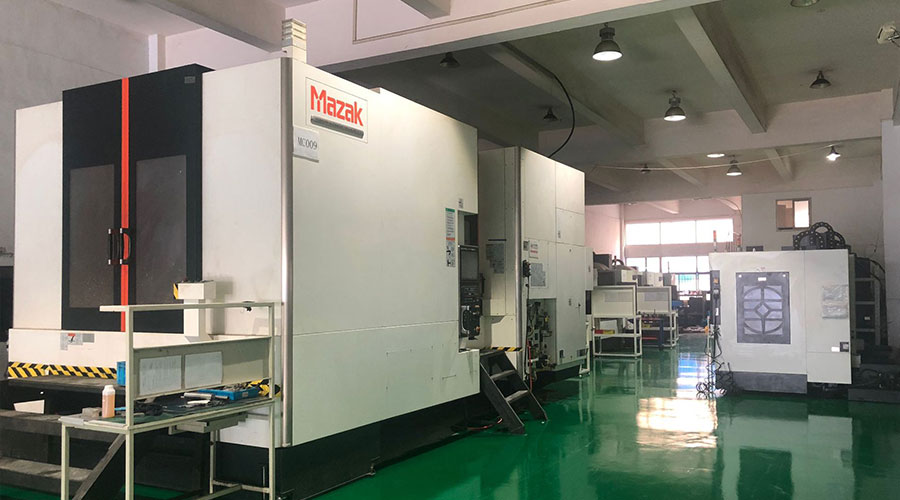 3, 4 and 5-axis precision CNC machining services for aluminum machining, beryllium, carbon steel, magnesium, titanium machining, Inconel, platinum, superalloy, acetal, polycarbonate, fiberglass, graphite and wood. Capable of machining parts up to 98 in. turning dia. and +/-0.001 in. straightness tolerance. Processes include milling, turning, drilling, boring, threading, tapping, forming, knurling, counterboring, countersinking, reaming and laser cutting. Secondary services such as assembly, centerless grinding, heat treating, plating and welding. Prototype and low to high volume production offered with maximum 50,000 units. Suitable for fluid power, pneumatics, hydraulics and valve applications. Serves the aerospace, aircraft, military, medical and defense industries.PTJ will strategize with you to provide the most cost-effective services to help you reach your target,Welcome to Contact us ( [email protected] ) directly for your new project.
3, 4 and 5-axis precision CNC machining services for aluminum machining, beryllium, carbon steel, magnesium, titanium machining, Inconel, platinum, superalloy, acetal, polycarbonate, fiberglass, graphite and wood. Capable of machining parts up to 98 in. turning dia. and +/-0.001 in. straightness tolerance. Processes include milling, turning, drilling, boring, threading, tapping, forming, knurling, counterboring, countersinking, reaming and laser cutting. Secondary services such as assembly, centerless grinding, heat treating, plating and welding. Prototype and low to high volume production offered with maximum 50,000 units. Suitable for fluid power, pneumatics, hydraulics and valve applications. Serves the aerospace, aircraft, military, medical and defense industries.PTJ will strategize with you to provide the most cost-effective services to help you reach your target,Welcome to Contact us ( [email protected] ) directly for your new project.
Link to this article:How to prevent the indentation of the overhead welding part?
Reprint Statement: If there are no special instructions, all articles on this site are original. Please indicate the source for reprinting.:Cnc Machining,Thank!^^

